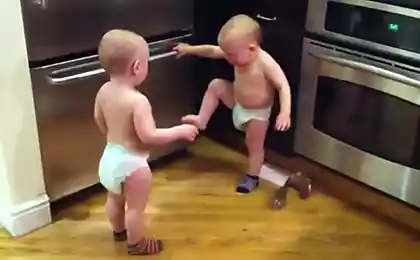183
Why Adult Children Don't Call Their Parents
Our parents worked hard to raise us as we are today. They gave their best years to parenting and caring for their children. They refused to implement their plans, dreams in order to provide their child with everything they need. The relationship between parents and children depends on both sides. If the relationship is not glued, then you need to deal with the problem together.

Respect is what parents expect of us as we grow up and become independent. This is how children express their gratitude to their father and mother. So why are families with good relationships in the minority?

Mom and Dad love their baby from day one. They do not sleep at night and patiently try to meet the needs of the baby. The primary needs of the child are physiological: food, healthy sleep, safety, love. Most caring mothers replace this concept with hyperprotection. This, in turn, prevents the child from developing. Over time, in this situation, children grow insecure, irresponsible and weak-willed.

“An unused function is atrophied or degraded,” said Jean Baptiste Lamarck in the eighteenth century. Too much care prevents a parent from realizing that if a child is physically healthy and unharmed, these aren’t all tasks to deal with. Especially when the child grows and waits for the support of parents in their development, they only hinder, fearing to stop controlling the actions of the child.

As a result, the child turns into an adult who does not know what he is capable of and is not able to take control of his own life. Will he be grateful for such an education? It will be more likely to blame and resent that as a child you did not let him step.

Taking responsibility for all the actions of the child, the parent takes on his shoulders an unbearable burden. Let the child know that his actions have consequences and that his future depends on the decisions he chooses for himself.

For a strong emotional bond between parents and children, you need to understand what they are interested in. Do not direct with your strict hand, but help develop as the child wants. Often this is where disagreement arises, because parents, they say, know better what their child needs to do. Do you know why? With such education, the individuality of the child, his desires and aspirations, if any, are suppressed at the root. But this is an open disrespect of parents to the personality of the child.

That is, a child is an individual, another person, and his respect for his parents is nurtured by their example. This is a generational conflict. Often, the child becomes hostage to the parent’s ambitions and unfulfilled plans. Without noticing it, parents humiliate the dignity of the child every time, pointing out his failures. Parents always want their children to live better than themselves, and try to teach the child from their mistakes. They only make things worse for their relationship.

When there are many grievances and unsaid in the family, the children “fly out of the nest” and the connection is interrupted. To establish a trusting relationship, you need to sit down and talk, tell what is eating your soul. So you will bring clarity, understand where the cause of remoteness and resentment will end. You need to understand that grievances do not come from nowhere, there is always a reason. And if you can not only listen, but also hear your child, you can establish contact with him.

If the parents have always helped the child to get on his own path, supported the initiative and respected his opinion, such a child will never ignore them in old age. He will be grateful for the fact that he was given the right to choose his fate and will always speak with respect and warmth about the most loved people in the world.

Respect is what parents expect of us as we grow up and become independent. This is how children express their gratitude to their father and mother. So why are families with good relationships in the minority?

Mom and Dad love their baby from day one. They do not sleep at night and patiently try to meet the needs of the baby. The primary needs of the child are physiological: food, healthy sleep, safety, love. Most caring mothers replace this concept with hyperprotection. This, in turn, prevents the child from developing. Over time, in this situation, children grow insecure, irresponsible and weak-willed.

“An unused function is atrophied or degraded,” said Jean Baptiste Lamarck in the eighteenth century. Too much care prevents a parent from realizing that if a child is physically healthy and unharmed, these aren’t all tasks to deal with. Especially when the child grows and waits for the support of parents in their development, they only hinder, fearing to stop controlling the actions of the child.

As a result, the child turns into an adult who does not know what he is capable of and is not able to take control of his own life. Will he be grateful for such an education? It will be more likely to blame and resent that as a child you did not let him step.

Taking responsibility for all the actions of the child, the parent takes on his shoulders an unbearable burden. Let the child know that his actions have consequences and that his future depends on the decisions he chooses for himself.

For a strong emotional bond between parents and children, you need to understand what they are interested in. Do not direct with your strict hand, but help develop as the child wants. Often this is where disagreement arises, because parents, they say, know better what their child needs to do. Do you know why? With such education, the individuality of the child, his desires and aspirations, if any, are suppressed at the root. But this is an open disrespect of parents to the personality of the child.

That is, a child is an individual, another person, and his respect for his parents is nurtured by their example. This is a generational conflict. Often, the child becomes hostage to the parent’s ambitions and unfulfilled plans. Without noticing it, parents humiliate the dignity of the child every time, pointing out his failures. Parents always want their children to live better than themselves, and try to teach the child from their mistakes. They only make things worse for their relationship.

When there are many grievances and unsaid in the family, the children “fly out of the nest” and the connection is interrupted. To establish a trusting relationship, you need to sit down and talk, tell what is eating your soul. So you will bring clarity, understand where the cause of remoteness and resentment will end. You need to understand that grievances do not come from nowhere, there is always a reason. And if you can not only listen, but also hear your child, you can establish contact with him.

If the parents have always helped the child to get on his own path, supported the initiative and respected his opinion, such a child will never ignore them in old age. He will be grateful for the fact that he was given the right to choose his fate and will always speak with respect and warmth about the most loved people in the world.























